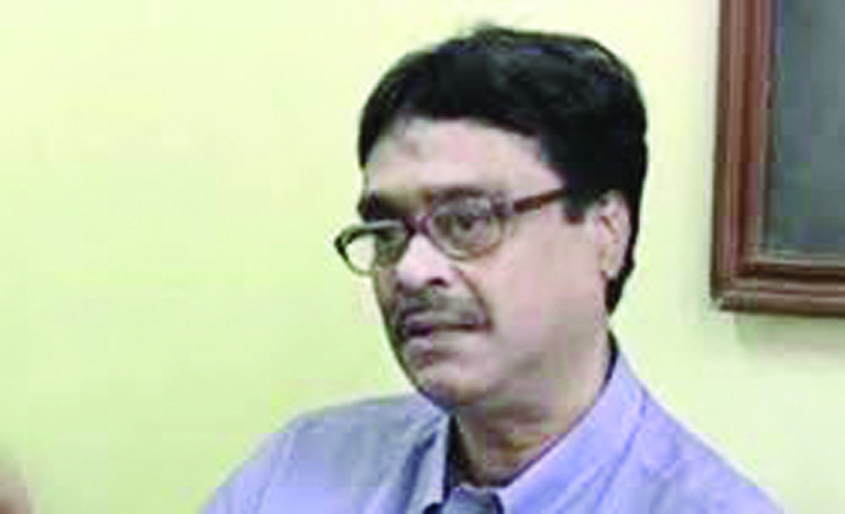The University of Delhi (DU) has just lost one of the senior most and popular historians on its faculty. In these times of breaking fake news and charged discussion of manslaughter for beef-eating and other accusations, the untimely death of a historian goes unnoticed. Historically, people in power have depended upon cunning theologians for religious justification of political violence. By contrast, scholars such as historians, political theorists and social analysts, who happen to be the best of the minds, are often suspected as anti-establishment; for, they are commonly viewed as speaking truth to power. In India, in the present, they are generally identified and condemned as secular or leftist. One such extraordinary figure was Dr Biswamoy Pati, whose life was brutally cut short last week. Pati reportedly died of cardiac arrest during a treatment, which involved an otherwise minor surgery for removing a bleeding polyp in the colon.
The sudden death of the historian with over three decades of research and teaching, first in the posh South Delhi college of Sri Venkateswara and then in the politically vibrant History Department of DU, has shocked a large number of his students, colleagues and friends. As someone who smilingly and big-heartedly intervened for all kinds of causes affecting colleagues and acquaintances, irrespective of caste, class, gender, religion or ideology—categories which haunt academia as they do society at large—Biswamoy Pati would have been surprised to know the great goodwill he enjoyed among scholars across the spectrum. The History fraternity is particularly shocked at the manner in which he has left, a manner typical of his style of not taking himself very seriously, while helping to learn, questioning and critiquing as well as reconstructing the mind of the students and researchers, which was his lifelong mission as teacher, father-figure and “Dada” (elder brother). The manner of his passing away is also in conformity with his career as a scholar, a major part of which was spent in understanding modern Western medicine, characterised by him as medical colonialism, which suppressed tribal and other indigenous practices of healing.
Pati published over 20 books, including collaborative volumes as part of collective projects, besides many articles in peer-reviewed journals and book-chapters on a wide range of themes of historical research, with an agenda to understand social and cultural processes unleashed by political regimes. Historical insights, thus gained, could then be deployed for a more concerned and legitimate political action to better the lives of adivasis and others at the margins of an unjust and hierarchical social order.
His recently published magnum opus, South Asia from the Margins: Echoes of Orissa, 1800-2000, offered a detailed investigation into the problems of colonialism and its impact upon the lives of the colonised.
The monographs focus on his primary field of work on a research frontier—social history of colonial and post-colonial Odisha. They include, Situating Social History: Orissa, 1800-1997 (2001), which delineated especially relatively unexplored issues of crucial import: health and disease; seemingly perennial questions of caste, class and gender; popular perceptions and literary articulations over two centuries of Odisha’s history—Odisha being on the margins of research for reasons political and historical.
Another tome, Identity, Hegemony, Resistance: Towards a Social History of Conversions in Orissa, 1800-2000 (2003), explored sensitive and topical questions relating to historical contexts and complexities generated by the process of conversion. It examined the evolution of the caste system and highlighted the life of tribals and untouchables undergoing a process of social and religious change. In doing so, Pati not only interrogated commonly held assumptions, but also adopted a more flexible and conversational approach—avoiding hackneyed generalisations on disturbing reports of occasional outbursts of terrible violence, not only in coastal districts but also in highlands. His more recently published magnum opus, South Asia from the Margins.

